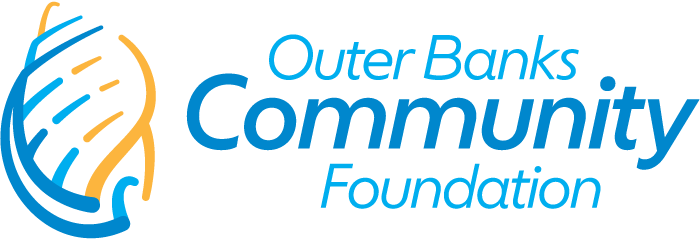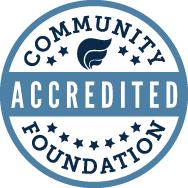Community Foundation Grant Will Help More People with Cancer
Update: November 21, 2018: We are so terribly sad to learn of Jennifer Wall’s passing on November 20. Truly, heaven has a new angel. We extend our thoughts and prayers to her family and friends.
When Jennifer Wall was diagnosed with cancer in May of 2015, she was frightened for herself and her family.
“I was diagnosed with cancer of the liver bile ducts. As a young mother of two young children, I was scared at the seriousness—and what the future would hold for myself and my family.” A graduate of East Carolina University, Jennifer lived in Kitty Hawk and owned a small business in Kill Devil Hills, all while being a mom.
As Jennifer fought her battle with cancer, she endured surgery and months of radiation in Raleigh. Meanwhile, her family began to struggle with the costs of child care and travel. The medical bills piled up, and Jennifer’s family started to fall behind.
The challenges facing Jennifer are distressingly common. Approximately one third of working-age cancer patients go into debt, according to Kaiser Permanente, and cancer patients are almost three times more likely to file for bankruptcy, according to the National Institutes of Health.
No one should face cancer alone, and here in the Outer Banks, they don’t have to.
In 2016, Jennifer discovered a charity called Interfaith. Established in 2004, Interfaith Community Outreach is a nonprofit organization in Kill Devil Hills that helps people like Jennifer who are struggling with a temporary, emergency crisis. Over these past two years, Interfaith has been helping Jennifer with living and travel expenses while she seeks cancer treatment.
If cancer seems like a growing phenomenon, that’s because it is. Almost 40% of all Americans will be diagnosed with cancer at some point during their lifetimes, according to the National Cancer Institute, and Interfaith sees a rising need for their services in the Outer Banks. Last year alone, Interfaith helped 700 local cancer patients and family members, which was a 17% increase over the prior year.
But there’s good news. Interfaith now has more resources to help more people like Jennifer. A recent grant from the Outer Banks Community Foundation of almost $25,000 will help Interfaith add staff capacity to their cancer program—and increase their coffers for providing direct financial assistance.
“This grant will make such a difference,” said Jean Freeman, who has been Interfaith’s Cancer Outreach Coordinator since the program began in 2015. “In these three years, unfortunately, our cancer outreach has grown beyond our imagination. With this grant we can increase our staff hours, help more clients, and have more time to raise more funds to sustain it.”
By providing support for Interfaith’s staff, this grant is the first of its kind for the Community Foundation. Founded in 1982, the Outer Banks Community Foundation has awarded over $8 million in grants and scholarships, but their grants have traditionally focused on tangible items and capital assets and improvements.
“In the past, our grants have been for specific, one-time purchases, like power generators for Hatteras Island, the new ballfield in Ocracoke, the new building for the Beach Food Pantry, and violins for the Dare Youth Orchestra,” said Lorelei Costa, the Community Foundation’s executive director. “These grants have made a huge impact on our community, but many nonprofits, like Interfaith, need staff, not stuff, to accomplish a vital mission.”
To better address nonprofits’ needs, this summer the Community Foundation announced a significant expansion of their grants program, adding staff salaries to the list of qualified grant expenses.
“Usually funds to pay staff are the hardest dollars for a nonprofit to raise,” explained Lorelei. “Now, thanks to our generous donors, the Community Foundation’s grant funding has grown, and we are able to offer grants that include program staff wages, as well as other hard costs.”
Though Interfaith relies on a cadre of dedicated volunteers, who logged more than 6,800 hours of volunteer labor in 2017, it’s the staff that keeps the organization running efficiently—and providing care and moral support to their clients.
“In addition to the monetary help, the staff at Interfaith check on me regularly and are genuinely concerned about my cancer battle,” said Jennifer.
This kind of emotional support can make all the difference. Another Interfaith client, Kat Reilly, is a recent survivor of breast cancer. She told us: “While all of the tests, the surgeries, and the chemotherapy are taking place, the bills are mounting. A lot of the expenses are covered by insurance, but some are not.”
Then Kat found Interfaith, who helped with her rent and transportation expenses, so she could concentrate on surviving and healing from cancer.
“It’s been proven that the better the attitude, the better the chances of faster healing,” said Kat. “Taking care of the financial end of things is stressful, no way around it, and it can easily affect your attitude in a negative way. To know that there were resources in our community that exist for situations like mine was beyond comforting.”
“The Community Foundation board was so enthusiastic about supporting this grant for Interfaith, because their impact on our community is so broad and immediate,” said Lorelei. “We have already seen a high demand for grant funding for staff, so applications are competitive.”
The foundation’s official criteria give priority to grant projects that benefit a broad segment of the community, are collaborative and/or innovative, attract additional funding from other sources, and/or enhance the organization’s financial sustainability. New programs are prioritized, as well as established programs that are filling a gap and/or meeting a vital, urgent need.
“For our staffing grants, we are really scrutinizing the nonprofits’ financials carefully, and looking for strong organizations that are well-managed and follow best practices,” said Lorelei. “We’re also looking for opportunities where our grant would make a transformative difference for that nonprofit and its mission.”
Interfaith’s mission goes beyond helping people with cancer. The organization has helped over 19,000 Outer Bankers in the face of crisis, including cancer or other illnesses, hurricanes or other disasters, job loss, or death in the family.
“These are friends, neighbors, and co-workers who are struggling, many of them in silence,” said Jean. “They are struggling to pay rent in order to keep a roof over their heads, and they are living in the dark because they couldn’t afford to pay their electricity bill last month.”
“We have seen great successes with clients going into remission or getting scans showing ‘no cancer,’ but we have also lost too many clients due to this dreaded disease,” continued Jean. “Our clients are so very grateful for the help and assistance they receive during their journey fighting this disease.”
As for Jennifer, her cancer is unfortunately not curable, but she can be kept stable with continued treatments. And she and her family continue to fight heroically, with Interfaith by their side. “I am fighting on, currently in a clinical trial. My faith is steadfast and I hope to survive this battle and be able to give back to others in the future.”
The Outer Banks Community Foundation is a public charity that connects people who care with causes that matter. The Community Foundation manages $18 million in 180 charitable funds for individuals and agencies, awards grants to local nonprofits, administers 50 scholarship programs, and provides tailored services to help donors pursue their charitable interests. Since its inception in 1982, the Community Foundation has awarded more than $8 million in grants and scholarships to local nonprofits and students. The next application deadline for a Community Foundation grant is Friday, October 26.





